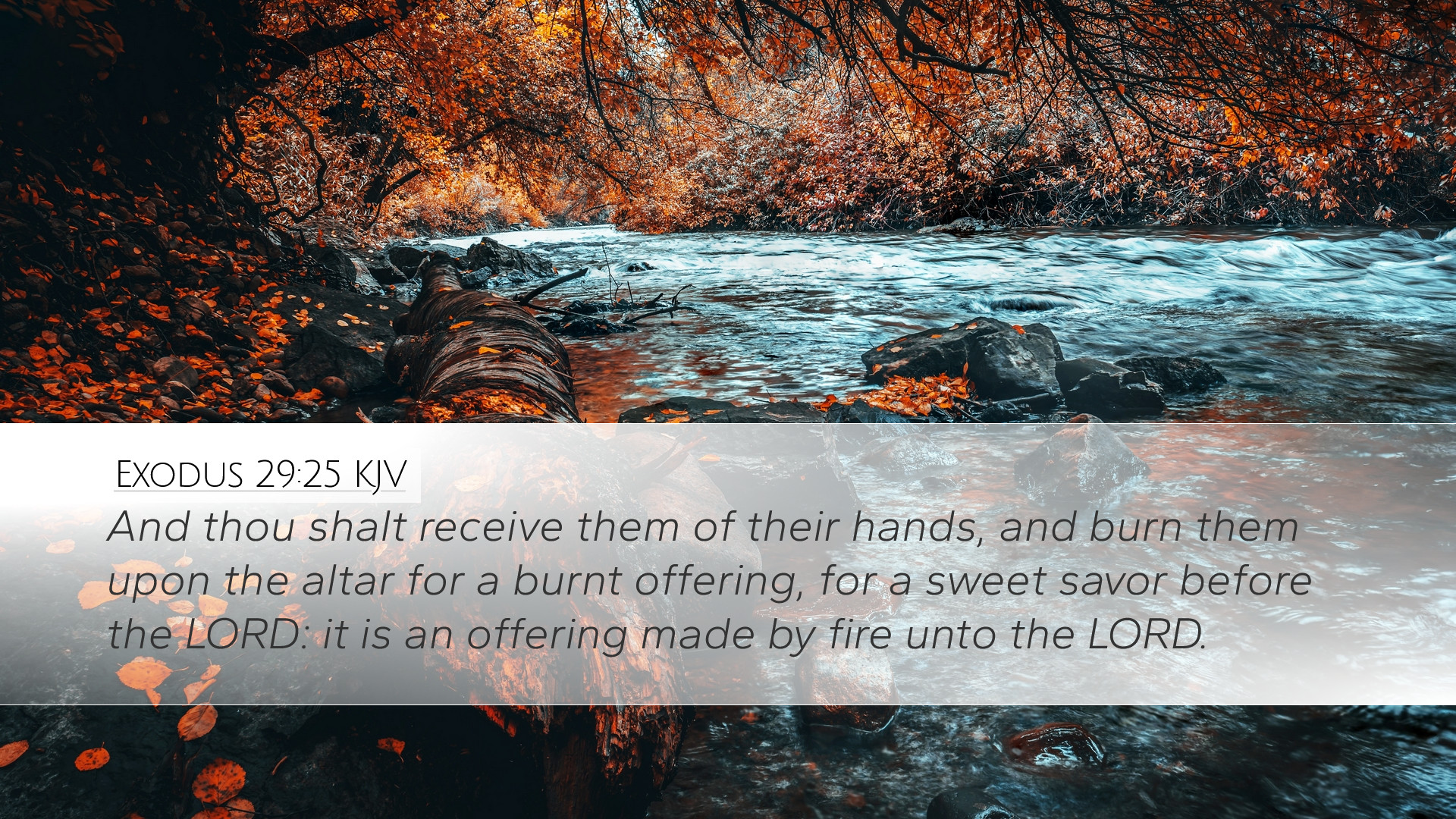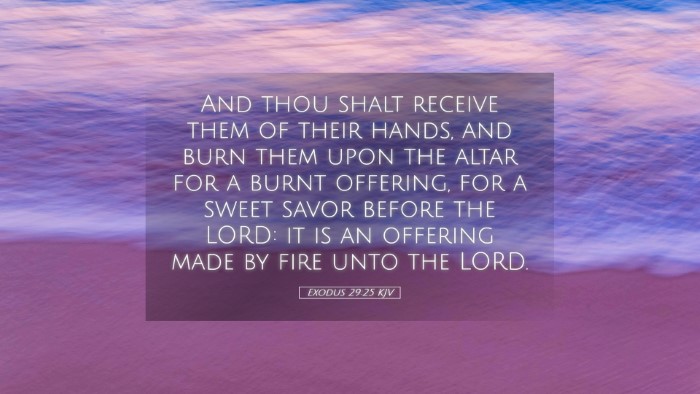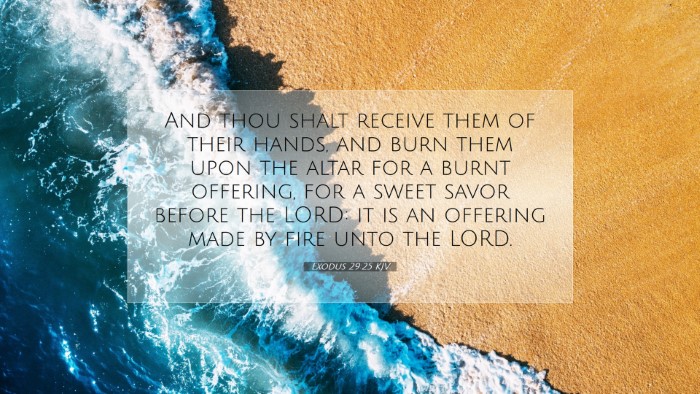Exodus 29:25 - Commentary Overview
Verse: "And thou shalt receive them of their hands, and burn the whole ram upon the altar: it is a burnt offering, for a sweet savour before the LORD: it is an offering made by fire unto the LORD."
Introduction
The verse Exodus 29:25 forms part of the instructions given to Moses regarding the consecration of the priests, particularly in relation to the burnt offerings that were to be made during this sacred ordination process. This act of offering reflects profound theological and spiritual meanings that speak to both historical and contemporary applications.
Theological Significance
1. Symbolism of the Burnt Offering:
- The burnt offering represented total surrender and devotion to God. In the act of burning the whole ram, priests signaled their complete commitment to God’s service.
- Matthew Henry notes that the term "sweet savor" indicates God’s pleasure in the offering, illustrating how the LORD yearns for relationship and covenant with His people.
- Albert Barnes adds that the burnt offering, wholly consumed, demonstrated the importance of giving oneself completely to God, as seen in Romans 12:1, where believers are called to present their bodies as living sacrifices.
Covenantal Implications
2. Representation of Atonement:
- The act of offering the ram is also connected to the concept of atonement. Adam Clarke explains that the sacrificial system established a means through which the people could approach God, their sins momentarily atoned for through the substitution of the animal's life.
- This foreshadows the ultimate sacrifice of Christ, who fulfills the burnt offering in totality, offering Himself as a sweet-smelling aroma to God on our behalf.
Contextual Analysis
3. Historical Context:
- During Moses’ time, these rituals were critical for maintaining the community’s relationship with God, illustrating obedience and reverence in worship.
- Henry highlights that the narrative serves as a reminder to the Israelites of their covenantal obligations and the seriousness of approaching God with reverence.
Practical Application
4. Contemporary Insights:
- For modern believers, the ritual signifies an invitation to present themselves wholly to God, echoing the teachings of total submission and reliance on God’s grace.
- Barnes encourages spiritual leaders and congregants alike to engage in personal reflection and to ensure their worship, like that of the burnt offerings, is genuine and intended as a pleasing tribute unto the LORD.
Conclusion
Exodus 29:25 encapsulates not only a historical practice but also a theological depth that provokes contemplation on themes of sacrifice, devotion, and the aroma of obedience that rises to God. Understanding this passage helps illuminate the ongoing narrative of redemption in the Scriptures, culminating in the full revelation of Christ’s sacrifice. Pastors, students, and theologians are encouraged to delve into these insights, allowing the richness of this Scripture to foster a deeper relationship with God and an appreciation of His covenantal grace.


